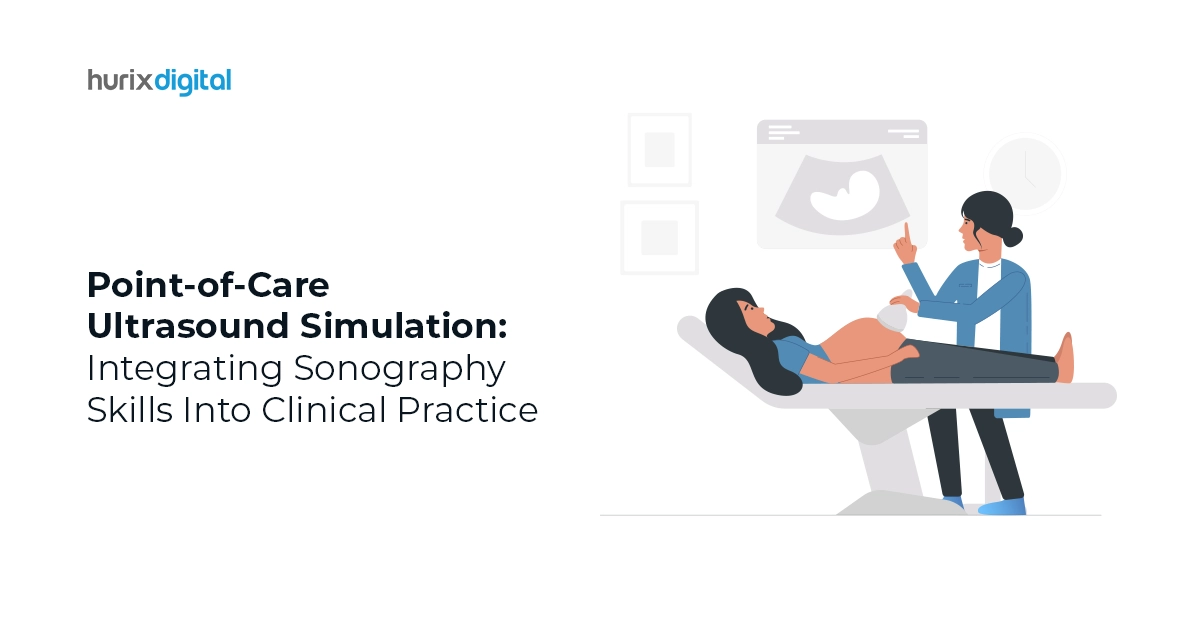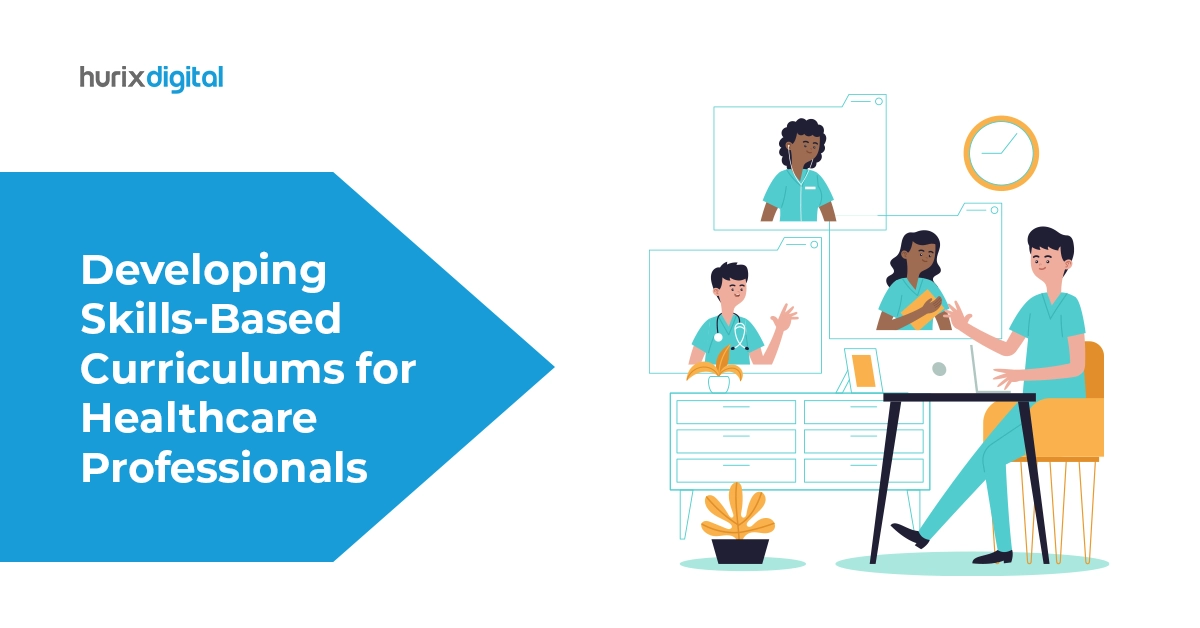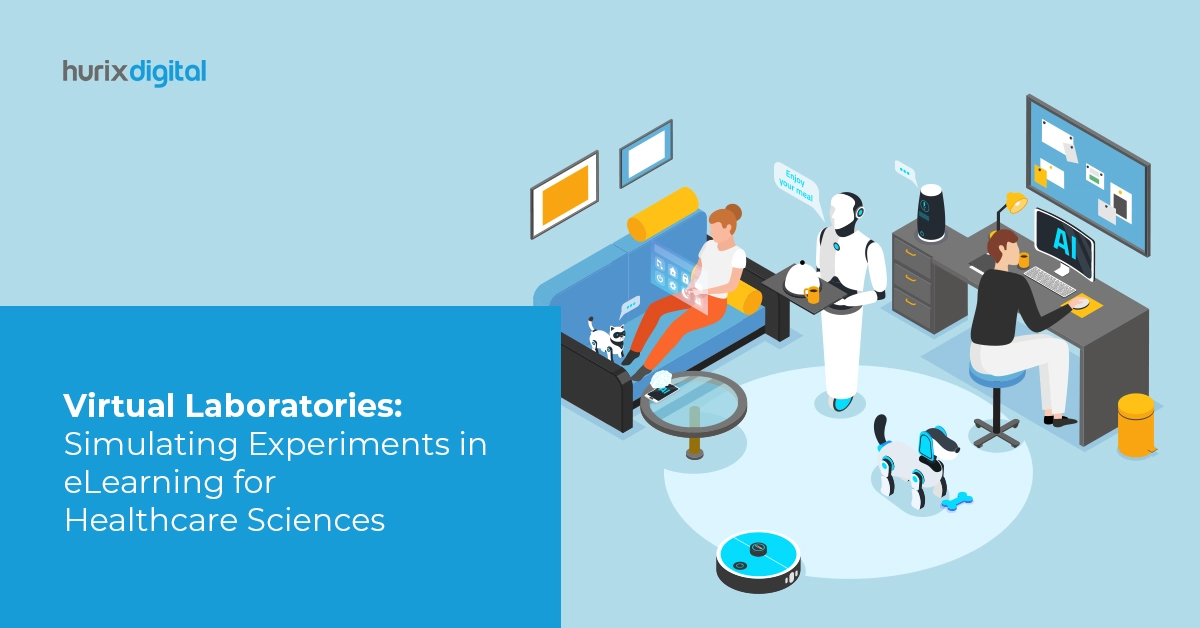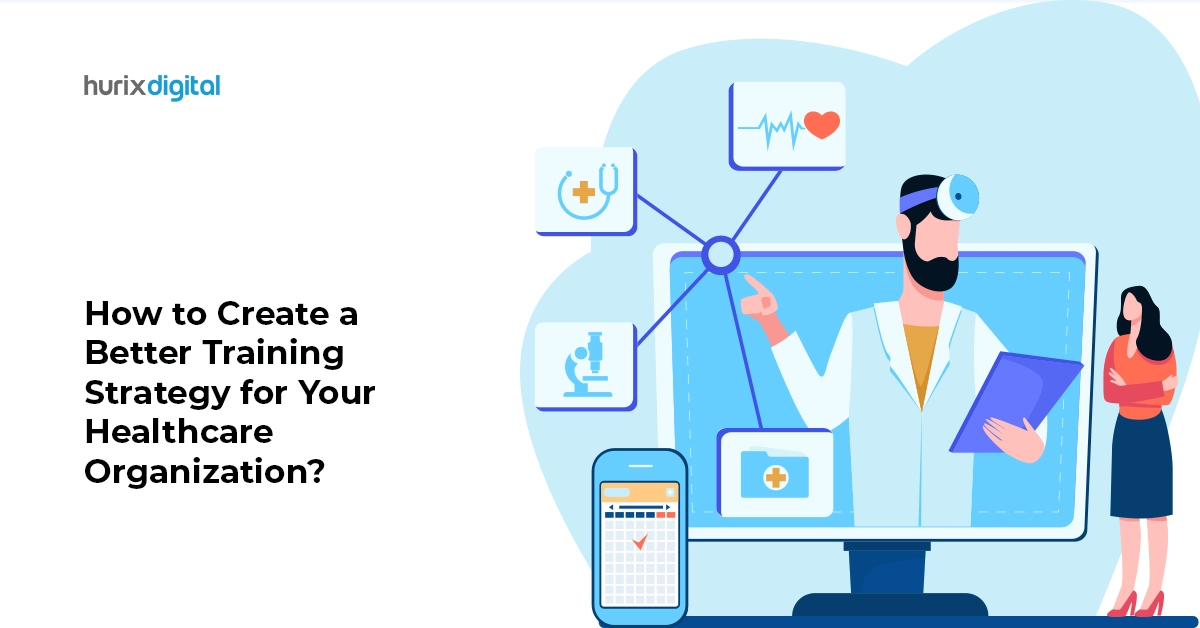
Point-of-Care Ultrasound Simulation: Integrating Sonography Skills Into Clinical Practice
Summary
Explore how ultrasound simulations can enhance sonography skills in clinical practice. This article highlights the benefits of integrating simulations into medical training.
Studies have found that simulation training tends to boost learner performance by 20% as compared to traditional training methods.
Now, there are many fields where one can implement this pedagogical tool to maximize learning efficiency. However, given how essential it is for medical professionals to demonstrate perfection and integrity in their jobs, the healthcare domain tops the list.
Not only this, simulated medical training also eliminates the risks involved in traditional clinical practice without compromising on its primary benefit, i.e., developing practical skills in students.
So, in this blog, let’s explore how adding simulations – particularly in Point-of-care ultrasound (POCUS) training – can help improve the quality of clinical practice while instilling essential sonography skills in students. Let’s start!
Table of Contents:
- What is Point-of-Care Ultrasound (POCUS)?
- What are the Advantages of Implementing POCUS in Hospitals?
- Integrating Simulation in POCUS: How Can it Benefit Healthcare Training?
- Wrapping Up
What is Point-of-Care Ultrasound (POCUS)?
Point-of-care ultrasound (POCUS) refers to a modern-day diagnostic technique that revolves around offering rapid, real-time results.
It leverages a portable ultrasound machine to generate instant sonography images for patients right at their bedside. This proves immensely helpful, especially in emergencies where patients require immediate medical attention.
Unlike traditional ultrasound diagnosis, POCUS is different as it doesn’t require healthcare specialists to use complex, bulky machines to conduct sonography. Moreover, one doesn’t even have to be a certified sonographer or radiologist to diagnose medical conditions with POCUS.
Owing to these and several other reasons, POCUS is being widely adopted across hospitals and medical centers in the world. This is why POCUS training in medical education has become mainstream.
Also Read: Patient Safety Games: Identifying and Addressing Risks Through Interactive Scenarios
What are the Advantages of Implementing POCUS in Hospitals?
The benefits of utilizing POCUS in the healthcare landscape are multidimensional. For instance, it fosters:
1. Rapid Diagnosis
One of the main USPs of POCUS diagnosis is its promptness. Unlike regular medical diagnoses, POCUS results are generated almost immediately. This allows healthcare professionals to avoid complications and provide effective treatment to patients without any delay. Perhaps this is why POCUS is believed to improve the primary diagnosis process in almost 18% of cases.
2. Enhanced Accuracy
The accuracy level of POCUS is unparalleled. According to statistics, it has a diagnosis accuracy of:
- 100% for specificity,
- 98.7% for pleural effusion,
- 90% for renal tract obstruction.
With such incredible precision in results, POCUS helps medical practitioners gain a precise, visual understanding of a condition’s severity and enables them to offer targeted medical help.
3. Minimum Radiation Exposure
When it comes to diagnosis methods like X-rays and CT scans, the risk of radiation exposure is high. This is why they are mostly not recommended for children, pregnant women, or patients with underlying health conditions.
This is where techniques like POCUS come to the rescue. As it doesn’t involve the use of ionizing radiation, the risk of radiation exposure becomes minimal.
4. High Portability
Another excellent benefit of POCUS is its portability. POCUS ultrasound devices are lightweight, compact, and mobile.
So, healthcare professionals can easily carry them to the patient’s room and conduct the diagnosis right then and there.
This capability is particularly crucial in treating elderly individuals and patients with disabilities who may face challenges in accessing designated diagnostic rooms. By bringing the equipment to the patient, healthcare providers can ensure timely and efficient assessment, leading to quicker treatment decisions and improved patient outcomes.
5. Cost-Effective Solution
POCUS diagnosis turns out to be much more economical than traditional ultrasound diagnosis. First of all, you do not have to install any of those expensive sonography machines.
Secondly, these devices do not require trained radiologists or sonographers to operate them. Therefore, expenses are minimized.
Integrating Simulation in POCUS: How Can it Benefit Healthcare Training?
POCUS is an emerging practice in healthcare. Therefore, to familiarize aspiring medical professionals with its ins and outs from an early stage, integrating simulations can turn out to be efficacious. Here’s how:
1. Fosters Hands-on Learning
Simulation training in healthcare is one of the best ways to equip students with essential hard skills.
Specifically in POCUS training, this translates to actively acclimatizing them to the sheer intricacies of ultrasound diagnosis, such as anatomy, physiology, image acquisition, image interpretation, and so on. This hands-on learning approach improves learning efficiency and fosters skill development.
2. Creates Realistic Scenarios
Like any other simulation, POCUS simulations are designed to closely mimic real-life scenarios.
What this means is that students get to learn how to tackle everyday medical cases from an early stage in their careers. Moreover, they also gain the ability to analyze and determine situations where they need to apply POCUS skills to practice.
3. Identifies and Corrects Errors
POCUS simulations offer immediate feedback to students. This implies that if a trainee makes any mistake at any point in the diagnosis, the technology identifies and highlights it.
Not just that. It also recommends suggestions to fix the error. This makes the entire learning process more engaging. This way, it also creates a practical learning environment where students learn from their mistakes.
4. Completely Risk-Free
Perhaps one of the best benefits of simulating POCUS training is its risk-free nature. Unlike traditional clinical practice, simulated POCUS trainings are conducted in a controlled, risk-free atmosphere.
So, even in the case of mishaps or blunders, the repercussions are minimal and pose no risk to any individual’s health. This makes it the perfect environment for exploring, experimenting, and, thereby, learning.
5. Highly Customizable
Last but not least, simulated POCUS training is highly customizable. As an educator, you can easily create scenarios that fit the unique learning needs of your students. This means it can accommodate students with any learning objective, skill requirement, or difficulty level, making the entire training more effective and optimized.
Also Read: Customized Assessments to Help Evaluate Competencies and Progress in Healthcare Education
Wrapping Up
With POCUS gaining popularity across the globe, it’s become essential for medical training institutions to equip their students with the appropriate skills. That’s the only promised way to ensure the coming generation of medical professionals is trained to be future-ready.
And in this regard, simulations provide the perfect solution in all aspects. From developing skills to acclimatizing students to real-world clinical scenarios, POCUS simulations do it all.
If you’re looking to kickstart your journey, Hurix Digital is your one-stop solution. With our immersive learning simulations, you can easily incorporate realistic simulations into your POCUS or any other healthcare training regimen to bolster its efficiency.
So hurry up and contact us today!

Senior Vice President – Business Development
Over 25 years of experience in the edtech and workforce learning industry with strong skills in Business Development, Customer Relationship Management (CRM) and Strategy.








